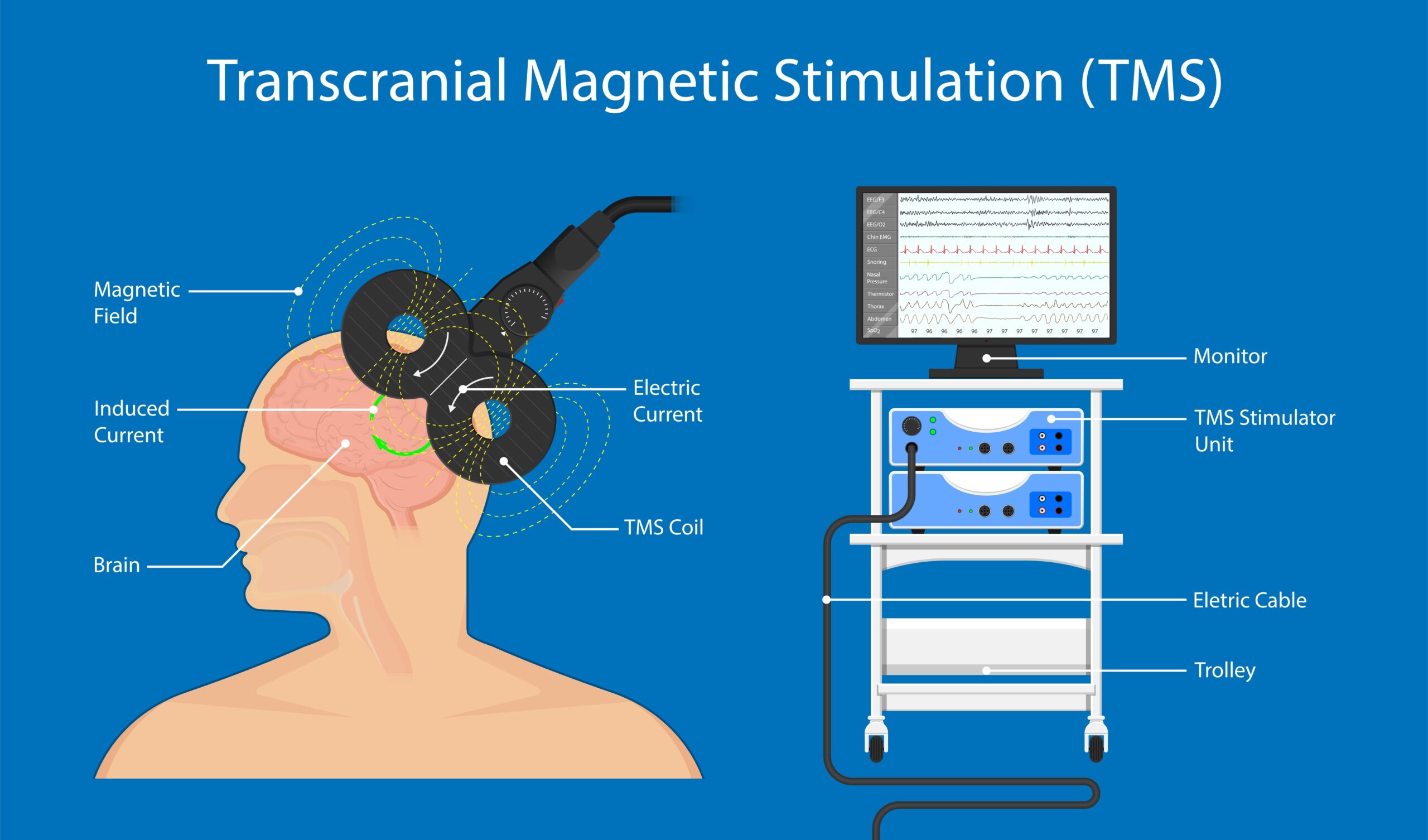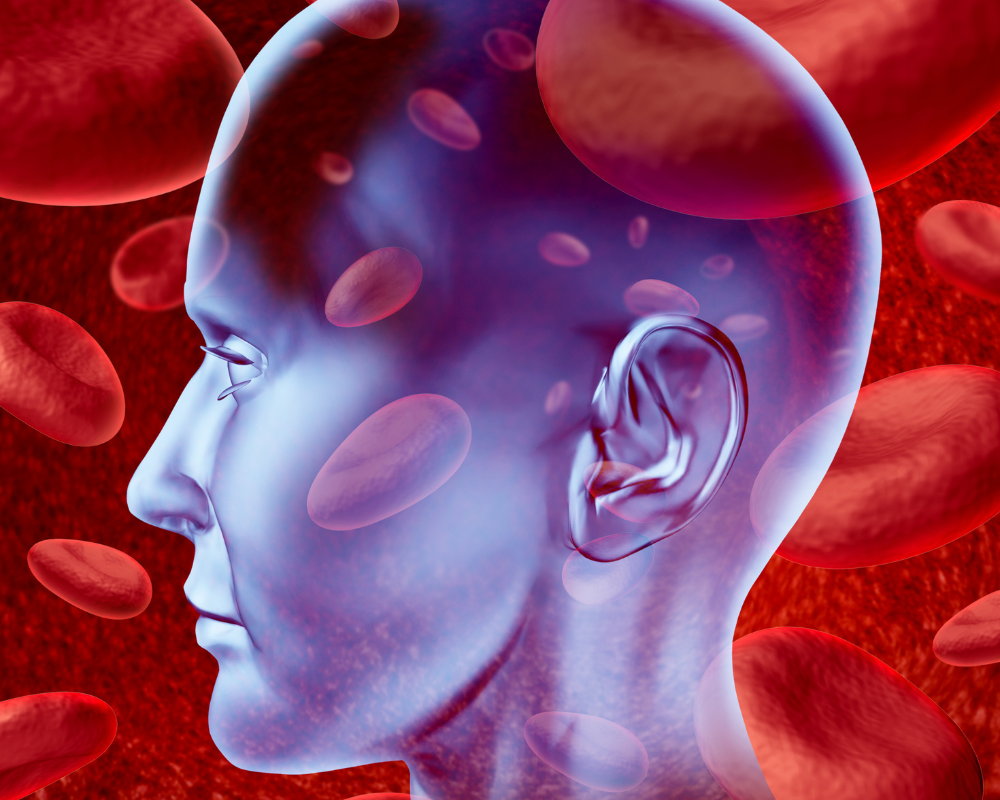As we delve into the world of mental health treatments, we understand that every therapy comes with its unique set of benefits and potential side effects. This is true for TMS therapy as well, a form of treatment that has garnered significant attention. In this post, we will explore the benefits and potential side effects of TMS therapy, arming you with the knowledge you need to make informed decisions about your mental health care.
Potential Side Effects of TMS Therapy
TMS therapy is commonly recognized as safe and well-tolerated. However, like any medical treatment, it can present potential side effects. Here are some of these potential side effects:
- Scalp discomfort and headaches: These are the most common side effects of TMS therapy. Generally, these symptoms subside shortly after the treatment session concludes.
- Tingling, spasms, or twitching of facial muscles: TMS therapy can induce these sensations.
- Lightheadedness: This is another possible side effect of TMS therapy.
- Seizures: While rare, seizures can be a severe potential side effect of TMS therapy.
- Mania: In certain individuals, particularly those with bipolar disorder, TMS therapy can precipitate mania.
- Hearing loss: If ear protection during treatment is inadequate, TMS therapy can lead to hearing loss.
- Fatigue: TMS therapy may cause feelings of fatigue.
- Mild discomfort: Some people experience mild discomfort during TMS therapy.
- Toothache: In some cases, TMS therapy can lead to toothache.
While the most common side effects of TMS therapy are scalp discomfort and headaches, these usually abate shortly after the conclusion of the treatment session. Other potential side effects include tingling, spasms, or twitching of facial muscles, lightheadedness, seizures, mania, hearing loss, fatigue, mild discomfort, and toothache.
The side effects of TMS therapy typically manifest as mild and short-lived, although they can vary depending on the individual and the specific condition being treated.
Are There Any Long-Term Side Effects of TMS Therapy?
Based on various sources, TMS therapy is not associated with any long-term side effects. Reported short-term side effects include scalp discomfort and headaches, which typically dissipate within the first week of treatment. Other potential side effects of TMS therapy include tingling, spasms, or twitching of facial muscles, lightheadedness, seizures, mania (particularly in people with bipolar disorder), hearing loss (if there is inadequate ear protection during treatment), fatigue, mild discomfort, and toothache in some patients. These side effects are usually temporary and subside shortly after the treatment session concludes.
Among these side effects, seizures are the most severe adverse effect. However, the risk of seizures is similar to that of antidepressants and occurs in less than 0.1 to 0.5% of patients. It’s important to note that other depression treatments can have far more life-altering side effects compared to TMS therapy. If a patient experiences any negative impact after TMS, these usually subside within a matter of weeks, whereas the side effects of antidepressants can last throughout the course of treatment and may even worsen.
Frequency of Seizures as a Side Effect of TMS Therapy
Seizures are a rare but serious potential side effect of TMS therapy. The incidence rate of seizures during TMS therapy is reportedly between less than 0.1 to 0.5% of patients. Seizures can occur in healthy individuals and patients, but the risk is challenging to estimate due to limitations in the studies. The overall risk of TMS-related seizures is less than 1%. The risk of seizures with TMS is estimated to be 0.08 per 1000, and TMS, when delivered within published guidelines to individuals without risk factors, appears to cause fewer than one seizure per 60,000 sessions
Are There Any Specific Patient Populations That May Be at Higher Risk for TMS Side Effects?
According to multiple sources, TMS therapy is generally considered safe and well-tolerated, and it isn’t associated with any long-term side effects. However, some patient populations may have a higher risk for TMS side effects. These include:
- Patients with a history of seizures or epilepsy: Those with a history of seizures or epilepsy might face an increased risk for seizures related to TMS therapy.
- Patients taking medications that affect the central nervous system: Individuals on medications that impact the central nervous system could potentially be at an increased risk for seizures due to TMS therapy. Examples of medications that affect the central nervous system include antidepressants, antipsychotics, benzodiazepines, and stimulants. Your TMS therapy provider will go over all of your current medication and history to advise you on any potential complications.
- Patients with metal implants in or near the head or neck: Patients who have metal implants in or near the head or neck region may face an elevated risk for complications related to TMS therapy.
Overall, TMS therapy is generally considered safe and well-tolerated, and there are no long-term side effects associated with it. However, patients with a history of seizures or epilepsy, patients taking medications that affect the central nervous system, and patients with metal implants in or near the head or neck may be at increased risk for TMS-related complications.
Concluding Thoughts
TMS therapy represents an exciting advancement in the field of mental health treatment. Its benefits include being non-invasive, effective for treatment-resistant depression, positively impacting quality of life, and offering minimal interruption to daily life. Like any treatment, it’s essential to be aware of potential side effects, which may include discomfort at the treatment site, lightheadedness, or in rare cases, seizures.





